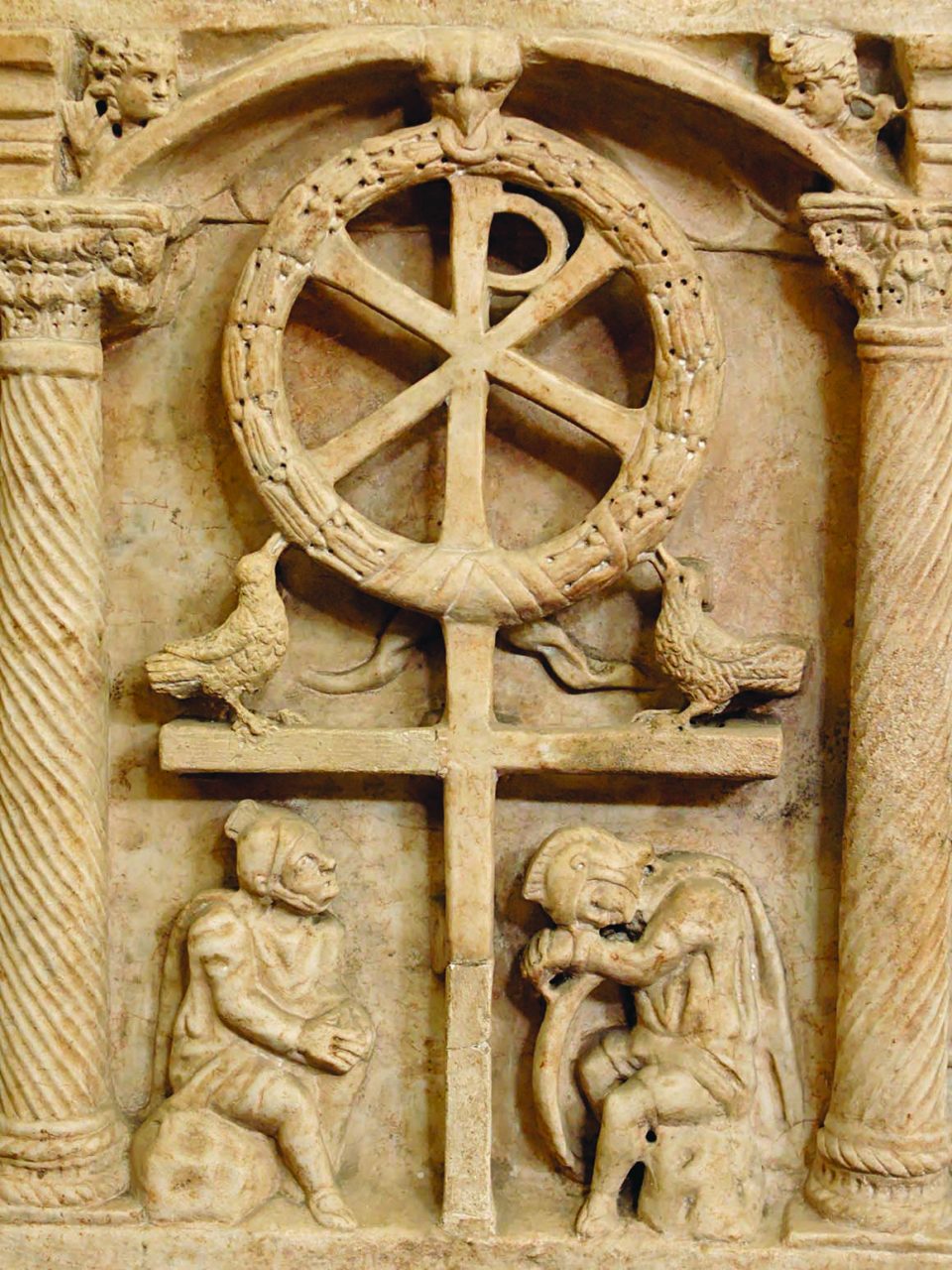Every year around Christmas, you can be certain of a few things: there will be Salvation Army volunteers ringing their bells at every corner; there will be the age-old Radio’s Needy Children Fund ad playing, and there will be people upset about the destruction of the sanctity of the holiday –- from Starbucks cups to the use of “X-mas”.
I’m sure by now everyone reading this article has come across some variation of “Keep Christ in Christmas”, but is the phrase “X-mas” removing Christ? The letter X used in the phrase actually stands for Jesus. This, however, is not common knowledge, and it is easy for someone to assume that its placement is with the intent of removing “Christ”. How does this letter stand for Christ? In Greek, which is the language of the New Testament, the word Christos begins with the letter X, (pronounced chi). However, the usage of X to represent Christ did not become popular until fourth-century Roman Emperor, Constantine the Great ordered his military banner to bear the first two letters of Christ; chi (X) and rho (P). This abbreviation was then used by Anglo-Saxon scribes to conserve on expensive parchment paper in 1021, and eventually the phrase XPmas eventually dwindled down to Xmas.
 Yet while all of this is true, does it mean that if someone tells you to stop taking the Christ out of Christmas, you should throw this knowledge in his or her face as if it is some trump card? The way I see it, as a person who is not Christian but enjoys Christmas, I should be respectful of the community that allows me to partake in its festivities. I understand that Christmas has blossomed into much more than just a religious holiday, becoming incredibly commercialised, and I can understand why some devout Christians feel as though their religion is being taken lightly. That being said, using the phrase Christmas over the phrase Xmas really doesn’t hurt me, (Except for the lack of space on my cards, but thankfully parchment is much cheaper nowadays), and by doing so, I can put someone at ease. If they really do mean the same thing, I don’t see why I should resist spelling out “Christ” if it will make someone else happy.
Yet while all of this is true, does it mean that if someone tells you to stop taking the Christ out of Christmas, you should throw this knowledge in his or her face as if it is some trump card? The way I see it, as a person who is not Christian but enjoys Christmas, I should be respectful of the community that allows me to partake in its festivities. I understand that Christmas has blossomed into much more than just a religious holiday, becoming incredibly commercialised, and I can understand why some devout Christians feel as though their religion is being taken lightly. That being said, using the phrase Christmas over the phrase Xmas really doesn’t hurt me, (Except for the lack of space on my cards, but thankfully parchment is much cheaper nowadays), and by doing so, I can put someone at ease. If they really do mean the same thing, I don’t see why I should resist spelling out “Christ” if it will make someone else happy.
Finally, people tend to “hate” on Christians who make their concerns known. While it is easy for some of us to laugh at them for being so fixated on small details, we shouldn’t discourage them for speaking their minds. They have a right to express their qualms, even if we, the greater public, find these concerns miniscule. Instead of laughing or dismissing them, we should try to get to the root of the problem. Let not things such as “Xmas” or red Starbucks cups pave the way for the creation of dichotomies and divides, but rather, let them provide an avenue for us to civilly discuss the changing of the religious landscape.
 Yet while all of this is true, does it mean that if someone tells you to stop taking the Christ out of Christmas, you should throw this knowledge in his or her face as if it is some trump card? The way I see it, as a person who is not Christian but enjoys Christmas, I should be respectful of the community that allows me to partake in its festivities. I understand that Christmas has blossomed into much more than just a religious holiday, becoming incredibly commercialised, and I can understand why some devout Christians feel as though their religion is being taken lightly. That being said, using the phrase Christmas over the phrase Xmas really doesn’t hurt me, (Except for the lack of space on my cards, but thankfully parchment is much cheaper nowadays), and by doing so, I can put someone at ease. If they really do mean the same thing, I don’t see why I should resist spelling out “Christ” if it will make someone else happy.
Yet while all of this is true, does it mean that if someone tells you to stop taking the Christ out of Christmas, you should throw this knowledge in his or her face as if it is some trump card? The way I see it, as a person who is not Christian but enjoys Christmas, I should be respectful of the community that allows me to partake in its festivities. I understand that Christmas has blossomed into much more than just a religious holiday, becoming incredibly commercialised, and I can understand why some devout Christians feel as though their religion is being taken lightly. That being said, using the phrase Christmas over the phrase Xmas really doesn’t hurt me, (Except for the lack of space on my cards, but thankfully parchment is much cheaper nowadays), and by doing so, I can put someone at ease. If they really do mean the same thing, I don’t see why I should resist spelling out “Christ” if it will make someone else happy.